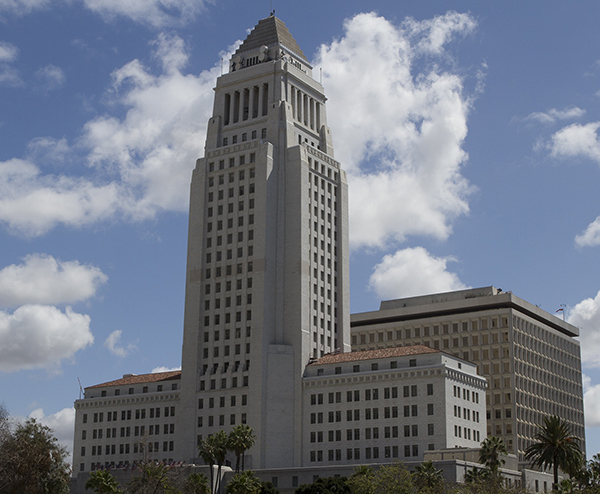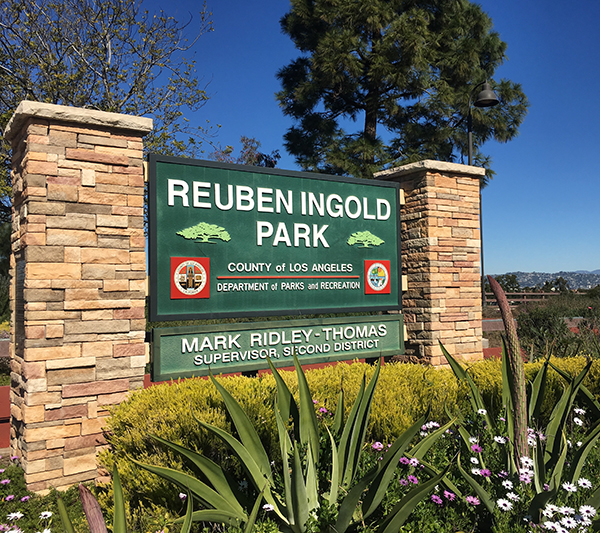By Earl Ofari Hutchinson
Contributing Columnist
With much fanfare, the Los Angeles City Council announced that it has established an Ad Hoc Committee on City Governance Reform.
The council acted only because it has been battered non-stop by demonstrators, the local and national media and state and national officials for racism, corruption, dysfunctionality and its chronic thumb-the-nose-at-the-public decision-making.
Yet, establishing another committee to propose and study reforms smacks of a time-buying ploy to ride out the storm. When the public rage passes, the council likely will quickly retreat to doing its business as usual. The business as usual is just more secrecy, more closed-door decision-making, and minimal to no accountability to residents and stakeholders.
The charade of reform is glaring because there is already a wide body of substantive reforms proposals, measures and blueprints for legislative change that have been on the table for local governmental bodies to adopt. Most of the reform measures have been routinely ignored by local government bodies. That certainly includes the Los Angeles City Council.
Let’s walk through a checklist of the more commonplace reform proposals that have been on the table for years. The major one involves transparency on spending.
Los Angeles residents pay tens of millions in taxes, fees and varied assessments yearly. The City Council is tasked with budgeting and spending that money.
How many taxpayers know how and on what the money is spent on? How many know how decisions are made on the spending?
The answers are deliberately shrouded in a cloak of mystery and invisibility to the public. The cloak remains even tighter drawn when some citizen groups demand answers.
Reform number one. Mandatory public input, a hearing and the issuance of a public report that detail the proposed items money is to be spent on.
Reform number two. The City Council must provide a strategic plan on every city agency, department and council committee’s budget, tasks, performance and efficiency.
Reform number three. To ensure the public is informed and engaged in the plan, a timely and regular performance report on all city agencies and council committees must be made public. The reports must be quantitative and qualitative.
Quantitative reporting will answer questions like, “What is the crime rate?” or, “How fast is the fire and police response?”
Qualitative reporting will answer, “The crime rate or fire and police response rate is X. What is the city doing to improve these results?”
None of these questions can be answered, let alone asked, when council members repeatedly go into executive sessions to make critical decisions about spending, public policy initiatives and the function of departments.
They are ripe pickings for money from lobbyists, corporate developers and labor bureaucrats. They have the direct pipeline to the council committee heads and members. They are the one who are counted on to provide the big dollars for reelection campaigns.
It’s a cozy, chummy, scratch-my-back relationship that smacks of self-aggrandizement and political insularity.
Reform number four. Due away with executive sessions and conduct all business, including decision-making before the public, with direct public input. There would be no cozy executive sessions to which the public is totally barred from where the crucial decisions on spending and public policy are made.
There is zero public input or knowledge of these decisions until after the fact — if then. Executive sessions are the favorite time-worn ploy the City Council uses to maintain opaqueness, mystery, secrecy, and self-aggrandizement.
The tape that caught three City Council members making cracks and digs about Blacks and Latinos and concocting schemes about redistricting was shocking only because this was one of the rare times that the public had an open window on the secret machinations of politicians. However, the secrecy that is embedded in the way the council has always done business is routine.
If there were tapes made of the stuff that’s said and done behind closed doors that mock and belittle public opinion, the public would have been up in arms ages ago.
Like all politicians, L.A. politicians pay much lip service to accountability. And, as with transparency, few really mean it, let alone welcome it.
If that were the case, they would continually inform their constituents on all proposals debated and discussed at every City Council meeting and in committee meetings on vital public policy issues.
Reform number five, total openness. Transparency and accountability can be reduced to these pledges — open books, open meetings, open disclosure, open doors.
So simply moving redistricting decisions from one set of politicians to another or putting more warm bodies on the City Council means nothing. It does not strike to the heart of making the City Council truly a body that embodies in spirt and fact true representative government.
My prediction stands. The council will talk long and loud about reform — limited as it may be. However, without massive public pressure for real reform, it will be just that — talk.
Earl Ofari Hutchinson is an author and political analyst. His forthcoming book is “The Midterms: Why They Are So Important and So Ignored” (Middle Passage Press). He also is the host of the weekly Earl Ofari Hutchinson Show, Saturdays from 9 to 11 a.m. on KPFK 90.7 FM Los Angeles and the Pacifica Network.











